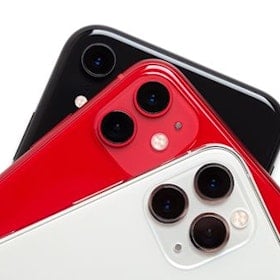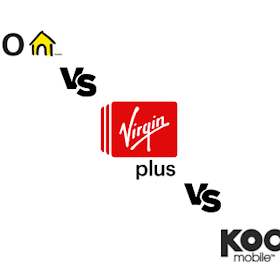iPhone 6s 64GB Prices & Plans
Features
- 4.7 inch display
- Apple iOS 9
- 64GB int. memory (useable capacity will be less)
- Released in September 2015
- 1GB RAM
- View full specs
Average Score
90/100
The iPhone 6s may not have an original design, but it has a number of features which elevate it above its predecessor, a...
WhistleOut
Read our full review
Compare Plans for the iPhone 6s 64GB
Sorry, No Results Found :(
Sorry, we were not able to find any results that match your search criteria.
iPhone 6s 64GB Specs
Display
| Type | Apple Retina HD display with 3D Touch (LED-backlit IPS LCD) |
|---|---|
| Screen Resolution | 750 x 1334 pixels |
| Screen Size | 4.7 inch (11.9 cm) |
| Touch Screen | Yes |
Camera
| Front | - |
|---|---|
| Rear | - |
| Flash Type | Dual-LED |
| Video Recording | 4K (3840 by 2160) at 30 fps, 1080p HD (30 fps or 60 fps) |
General
| Release Date | September 2015 |
|---|---|
| Operating System | Apple iOS 9 |
| Processor Type | A9 |
| Processor Speed | 1.3 GHz |
| Graphics Processor Type | - |
| SIM Card | - |
| Battery Capacity | Not available |
| Battery Features | - |
| RAM | 1GB |
| Internal | 64GB |
| Expandable | - |
Physical
| Width | 67.1 mm |
|---|---|
| Height | 138.3 mm |
| Thickness | 7.1 mm |
| Weight | 143 grams |
| Material | - |
| Colors | - |
| Water and Dust Resistance | No |
Features
| Intelligence | - |
|---|---|
| NFC | No |
| GPS | Yes |
| Sensors | Accelerometer, Gyrometer |
| Audio Formats | AAC, Protected AAC, HE-AAC, MP3, MP3 VBR, Audible (formats 2, 3, 4, Audible Enhanced Audio, AAX, and AAX+), Apple Lossless, AIFF, and WAV |
| Video Formats | H.264, MPEG-4, Motion JPEG, AAC-LC, .m4v, .mp4, .mov |
Connectivity
| Maximum Data Speed | 300 Mbps |
|---|---|
| WiFi | 802.11 a/b/g/n/ac with MIMO |
| USB | microUSB 2.0 |
| Networks | - |
| Frequencies | - |
| Headphone jack | No |
| Connectivity Features | Bluetooth |
iPhone 6s 64GB Reviews
|
V.Positive
|
WhistleOut Review
Joseph Hanlon (WhistleOut) |
|---|
iPhone 6s 64GB Review
Editor's note
This review is over eight years old. Since then, Apple's released several phones, including the iPhone 15 and iPhone 14.
The iPhone 6s is no longer available from Apple or Canadian carriers, but you might be able to find it from third-party retailers like Amazon or Best Buy.

Pros:
- Battery life is surprisingly good
- Great look, solid construction
- 3D Touch is more useful than it first appears
- Live Photos is cute, if a gimmick
Cons:
- One of the most expensive phones available
- Some parts of iOS are still frustrating
Describing Apple’s ’S’ years is a tricky task for all technology writers. Recently, some have resorted to a clock analogy, so that the iPhone has ‘tick’ years and ‘tock’ years. The iPhone 6s is a ‘tock’ year device, signifying that it looks identical to its predecessor, but comes with a with unique advantages and upgrades.
Though it would also be fair to say that the iPhone 6s is the ‘tock year device with the most meaning enhancements in the short history of Apple smartphones.
Whether you’re talking about the new, excellent 3D Touch tech, or the the upgraded camera, there is plenty here to recommend an upgrade from an older model — something we didn’t say when the iPhone 4s and iPhone 5s were released.

Size, shape and specs
If nothing else, Apple’s duplicate design sure makes my job easier. To the naked eye it is almost impossible to spot a new iPhone 6s from a distance unless it is in the new Rose Gold colour. Apple maintains all of the same styling, all of the same trims and flourishes, so that despite the newer models being slightly thicker and slightly heavier, these handsets are basically the iPhone 6.
Under the hood is a different story. Apple packs in a new A9 processor with a new graphics processor and double the RAM of last year’s model. Apple is claiming a 70% increase in power, though of course this is very hard to judge in use.
Apple keeps the screen size and resolution the same, with a 4.7-inch screen with 1334 x 750 pixels, or a Retina display in marketing parlance. It is an excellent screen, with rich, bright colours and a noticeable clarity, despite it having millions fewer pixels than the Samsung Galaxy S6.

Battery life
Perhaps the most pleasing surprise for us was the performance of the battery in the iPhone 6s. To cram in all the new tech, Apple actually had to decrease the size of the battery this year: down from 1810mAh capacity to 1715mAh. This might not some like a significant downgrade, but any smartphone owner will tell you that every little bit counts.
Happily, we didn’t notice the difference and enjoyed a between a full day to a day-and-a-half between charges. And when we say a full day, we mean 24-hours, not from the morning to the evening. After we charged the phone in the office in the morning, we found we could easily make it through the day and night and have enough charge to return to the power outlet in the office the next day.
Apple has also implement fast-charging in the iPhone 6s, so even if your usage is higher than mine, you can top up a significant chunk of battery life in a short space of time.

3D Touch
Far and away the more surprising new feature is 3D Touch. To explain it briefly, and completely oversimplify it, 3D Touch is like pressing into the screen. You’ve also been able to tap on the screen, and even long-press to access different functions, but with 3D Touch you can also press firmly and press harder still — opening up numerous possibilities for new ways to interact with apps.
These new interactions will need to be programmed into your favourite apps, so Apple has made sure all of the pre-installed apps shows off what is possible. For example, press ‘into’ the Messages app icon and get a shortcut to create a new message without opening the app. Press into a new email to quickly preview the message, or press firmer still to open your new email and begin replying.
iOS
As millions of people worldwide will attest, iOS is still incredibly easy to use. Mostly everything is clearly labelled, and it has a straightforward flow: tap an app, press home to return to the beginning. Swiping up from the bottom reveals shortcuts, most of which are super useful, though we wish there was a way to select a WiFi network, or Bluetooth device, rather than just being able to turn these on and off.
Also, we still hate the way Apple keeps all settings, for all apps, behind the main Settings button. We understand the logic -- makes it easy to use -- but the number of times we've need to adjust a setting within an app only to have to exit it, go to Settings, make the change, then return to the app. This is not in the spirit of straightforward.

My favourite use of 3D Touch is on the keyboard when typing out a new message. To position the cursor on an older iPhone you press on the text and position it awkwardly. With 3D Touch you press firmly on the keyboard itself and convert it into a trackpad, like you have you on your laptop. In this mode you can easily move the cursor to any position on the screen and get back to typing again as soon as possible.
Several popular apps have been quick to the 3D Touch party, with Facebook and Instagram apps already with 3D Touch interactions programmed in. But what is most exciting is imagining who will come up with the best uses of this new tech as it matures over the next 12-months.

Camera
Apple fans were excited when Apple announce the iPhone 6s would ship with a 12-megapixel camera, rather than the 8-megapixel sensors in previous models. For some, this was an indicator of an improvement in image quality. This is not necessarily true.
Of course, Apple has a great reputation for high quality cameras in its phones, and while the increase in pixels on the sensor isn’t itself an indication of an enhancement, the camera is still one of the best in the market. It is lightning-fast, accurate and it recognises colours beautifully.
Apple has also create a feature it calls Live Photos, where the camera captures 1.5-seconds on either side of the final shot, so when you view the pics in your gallery they move a little bit. This is more gimmick than anything, but it’s a nice touch.



Overall
As Apple’s ’S’ phones go, the iPhone 6s is the best yet. Indeed, it is the best iPhone to date. the core of the phone is rock solid; processing is fast, the screen is good and the App Store is still overflowing with apps to download. But changes to the camera and the new 3D Touch tech elevate the iPhone 6s from being same-same to being a model worthy of attention in its own right.
-
 iPhone SE (2020) 128GB4.7" / Apple iOS
iPhone SE (2020) 128GB4.7" / Apple iOS -
 iPhone SE (2020) 256GB4.7" / Apple iOS
iPhone SE (2020) 256GB4.7" / Apple iOS -
 iPhone SE (2020) 64GB4.7" / Apple iOS
iPhone SE (2020) 64GB4.7" / Apple iOS -
 iPhone SE (2022) 128GB4.7" / Apple iOS
iPhone SE (2022) 128GB4.7" / Apple iOS -
 iPhone SE (2022) 256GB4.7" / Apple iOS
iPhone SE (2022) 256GB4.7" / Apple iOS -
 iPhone SE (2022) 64GB4.7" / Apple iOS
iPhone SE (2022) 64GB4.7" / Apple iOS -
 Samsung Galaxy A206.4" / Android
Samsung Galaxy A206.4" / Android -
 iPhone 7 128GB4.7" / Apple iOS90/100
iPhone 7 128GB4.7" / Apple iOS90/100 -
 iPhone 7 32GB4.7" / Apple iOS90/100
iPhone 7 32GB4.7" / Apple iOS90/100 -
 TCL 3035.5" / Android
TCL 3035.5" / Android -
 Motorola Moto G Fast6.4" / Android
Motorola Moto G Fast6.4" / Android -
 ZTE Blade A7P6.52" / Android
ZTE Blade A7P6.52" / Android
-
 iPhone 16 128GB6.1" / Apple iOS
iPhone 16 128GB6.1" / Apple iOS -
 iPhone 16e 128GB6.1" / Apple iOS
iPhone 16e 128GB6.1" / Apple iOS -
 iPhone 16 Pro Max 256GB6.9" / Apple iOS
iPhone 16 Pro Max 256GB6.9" / Apple iOS -
 iPhone 16 Pro 128GB6.3" / Apple iOS
iPhone 16 Pro 128GB6.3" / Apple iOS -
 iPhone 16e 256GB6.1" / Apple iOS
iPhone 16e 256GB6.1" / Apple iOS -
 iPhone 16 256GB6.1" / Apple iOS
iPhone 16 256GB6.1" / Apple iOS -
 iPhone 16 Pro 256GB6.3" / Apple iOS
iPhone 16 Pro 256GB6.3" / Apple iOS -
 iPhone 16 Plus 512GB6.7" / Apple iOS
iPhone 16 Plus 512GB6.7" / Apple iOS -
 iPhone 16 Plus 256GB6.7" / Apple iOS
iPhone 16 Plus 256GB6.7" / Apple iOS -
 iPhone 16 Plus 128GB6.7" / Apple iOS
iPhone 16 Plus 128GB6.7" / Apple iOS -
 iPhone 16 Pro 512GB6.3" / Apple iOS
iPhone 16 Pro 512GB6.3" / Apple iOS -
 iPhone 16 Pro Max 512GB6.9" / Apple iOS
iPhone 16 Pro Max 512GB6.9" / Apple iOS -
 iPhone 16 512GB6.1" / Apple iOS
iPhone 16 512GB6.1" / Apple iOS -
 iPhone 16 Pro 1TB6.3" / Apple iOS
iPhone 16 Pro 1TB6.3" / Apple iOS -
 iPhone 16 Pro Max 1TB6.9" / Apple iOS
iPhone 16 Pro Max 1TB6.9" / Apple iOS -
 iPhone 16e 512GB6.1" / Apple iOS
iPhone 16e 512GB6.1" / Apple iOS -
 iPhone 15 128GB6.1" / Apple iOS
iPhone 15 128GB6.1" / Apple iOS -
 iPhone 14 128GB6.1" / Apple iOS
iPhone 14 128GB6.1" / Apple iOS -
 iPhone 13 128GB6.1" / Apple iOS
iPhone 13 128GB6.1" / Apple iOS -
 iPhone 15 Pro 128GB6.1" / Apple iOS
iPhone 15 Pro 128GB6.1" / Apple iOS -
 iPhone 14 256GB6.1" / Apple iOS
iPhone 14 256GB6.1" / Apple iOS -
 iPhone 14 Pro Max 128GB6.7" / Apple iOS
iPhone 14 Pro Max 128GB6.7" / Apple iOS -
 iPhone 15 Pro 512GB6.1" / Apple iOS
iPhone 15 Pro 512GB6.1" / Apple iOS -
 iPhone 11 128GB6.1" / Apple iOS
iPhone 11 128GB6.1" / Apple iOS -
 iPhone 14 Plus 128GB6.7" / Apple iOS
iPhone 14 Plus 128GB6.7" / Apple iOS -
 iPhone 15 Pro Max 512GB6.7" / Apple iOS
iPhone 15 Pro Max 512GB6.7" / Apple iOS -
 iPhone SE (2022) 128GB4.7" / Apple iOS
iPhone SE (2022) 128GB4.7" / Apple iOS -
 iPhone 13 512GB6.1" / Apple iOS
iPhone 13 512GB6.1" / Apple iOS -
 iPhone 11 64GB6.1" / Apple iOS
iPhone 11 64GB6.1" / Apple iOS -
 iPhone SE (2020) 64GB4.7" / Apple iOS
iPhone SE (2020) 64GB4.7" / Apple iOS -
 iPhone 15 Pro Max 1TB6.7" / Apple iOS
iPhone 15 Pro Max 1TB6.7" / Apple iOS -
 iPhone 11 256GB6.1" / Apple iOS
iPhone 11 256GB6.1" / Apple iOS -
 iPhone 11 Pro 256GB5.8" / Apple iOS
iPhone 11 Pro 256GB5.8" / Apple iOS -
 iPhone 11 Pro 512GB5.8" / Apple iOS
iPhone 11 Pro 512GB5.8" / Apple iOS -
 iPhone 11 Pro 64GB5.8" / Apple iOS
iPhone 11 Pro 64GB5.8" / Apple iOS -
 iPhone 11 Pro Max 256GB6.5" / Apple iOS
iPhone 11 Pro Max 256GB6.5" / Apple iOS -
 iPhone 11 Pro Max 64GB6.5" / Apple iOS
iPhone 11 Pro Max 64GB6.5" / Apple iOS -
 iPhone 12 128GB6.1" / Apple iOS
iPhone 12 128GB6.1" / Apple iOS -
 iPhone 12 256GB6.1" / Apple iOS
iPhone 12 256GB6.1" / Apple iOS -
 iPhone 12 64GB6.1" / Apple iOS
iPhone 12 64GB6.1" / Apple iOS -
 iPhone 12 mini 256GB5.4" / Apple iOS
iPhone 12 mini 256GB5.4" / Apple iOS -
 iPhone 12 mini 64GB5.4" / Apple iOS
iPhone 12 mini 64GB5.4" / Apple iOS -
 iPhone 12 Pro Max 128GB6.7" / Apple iOS
iPhone 12 Pro Max 128GB6.7" / Apple iOS -
 iPhone 13 256GB6.1" / Apple iOS
iPhone 13 256GB6.1" / Apple iOS -
 iPhone 13 mini 128GB5.4" / Apple iOS
iPhone 13 mini 128GB5.4" / Apple iOS -
 iPhone 13 mini 256GB5.4" / Apple iOS
iPhone 13 mini 256GB5.4" / Apple iOS -
 iPhone 13 mini 512GB5.4" / Apple iOS
iPhone 13 mini 512GB5.4" / Apple iOS -
 iPhone 13 Pro 128GB6.1" / Apple iOS
iPhone 13 Pro 128GB6.1" / Apple iOS -
 iPhone 13 Pro 1TB6.1" / Apple iOS
iPhone 13 Pro 1TB6.1" / Apple iOS -
 iPhone 13 Pro 256GB6.1" / Apple iOS
iPhone 13 Pro 256GB6.1" / Apple iOS -
 iPhone 13 Pro 512GB6.1" / Apple iOS
iPhone 13 Pro 512GB6.1" / Apple iOS -
 iPhone 13 Pro Max 128GB6.7" / Apple iOS
iPhone 13 Pro Max 128GB6.7" / Apple iOS -
 iPhone 13 Pro Max 1TB6.7" / Apple iOS
iPhone 13 Pro Max 1TB6.7" / Apple iOS -
 iPhone 13 Pro Max 256GB6.7" / Apple iOS
iPhone 13 Pro Max 256GB6.7" / Apple iOS -
 iPhone 13 Pro Max 512GB6.7" / Apple iOS
iPhone 13 Pro Max 512GB6.7" / Apple iOS -
 iPhone 14 512GB6.1" / Apple iOS
iPhone 14 512GB6.1" / Apple iOS -
 iPhone 14 Plus 256GB6.7" / Apple iOS
iPhone 14 Plus 256GB6.7" / Apple iOS -
 iPhone 14 Plus 512GB6.7" / Apple iOS
iPhone 14 Plus 512GB6.7" / Apple iOS -
 iPhone 14 Pro 128GB6.1" / Apple iOS
iPhone 14 Pro 128GB6.1" / Apple iOS -
 iPhone 14 Pro 1TB6.1" / Apple iOS
iPhone 14 Pro 1TB6.1" / Apple iOS -
 iPhone 14 Pro 256GB6.1" / Apple iOS
iPhone 14 Pro 256GB6.1" / Apple iOS -
 iPhone 14 Pro 512GB6.1" / Apple iOS
iPhone 14 Pro 512GB6.1" / Apple iOS -
 iPhone 14 Pro Max 1TB6.7" / Apple iOS
iPhone 14 Pro Max 1TB6.7" / Apple iOS -
 iPhone 14 Pro Max 256GB6.7" / Apple iOS
iPhone 14 Pro Max 256GB6.7" / Apple iOS -
 iPhone 14 Pro Max 512GB6.7" / Apple iOS
iPhone 14 Pro Max 512GB6.7" / Apple iOS -
 iPhone 15 256GB6.1" / Apple iOS
iPhone 15 256GB6.1" / Apple iOS -
 iPhone 15 512GB6.1" / Apple iOS
iPhone 15 512GB6.1" / Apple iOS -
 iPhone 15 Plus 128GB6.7" / Apple iOS
iPhone 15 Plus 128GB6.7" / Apple iOS -
 iPhone 15 Plus 256GB6.7" / Apple iOS
iPhone 15 Plus 256GB6.7" / Apple iOS -
 iPhone 15 Plus 512GB6.7" / Apple iOS
iPhone 15 Plus 512GB6.7" / Apple iOS -
 iPhone 15 Pro 1TB6.1" / Apple iOS
iPhone 15 Pro 1TB6.1" / Apple iOS -
 iPhone 15 Pro 256GB6.1" / Apple iOS
iPhone 15 Pro 256GB6.1" / Apple iOS -
 iPhone 15 Pro Max 256GB6.7" / Apple iOS
iPhone 15 Pro Max 256GB6.7" / Apple iOS -
 iPhone 7 128GB4.7" / Apple iOS90/100
iPhone 7 128GB4.7" / Apple iOS90/100 -
 iPhone 7 32GB4.7" / Apple iOS90/100
iPhone 7 32GB4.7" / Apple iOS90/100 -
 iPhone SE (2020) 128GB4.7" / Apple iOS
iPhone SE (2020) 128GB4.7" / Apple iOS -
 iPhone SE (2020) 256GB4.7" / Apple iOS
iPhone SE (2020) 256GB4.7" / Apple iOS -
 iPhone SE (2022) 256GB4.7" / Apple iOS
iPhone SE (2022) 256GB4.7" / Apple iOS -
 iPhone SE (2022) 64GB4.7" / Apple iOS
iPhone SE (2022) 64GB4.7" / Apple iOS -
 iPhone XR 64GB6.1" / Apple iOS
iPhone XR 64GB6.1" / Apple iOS -
 iPhone XS 64GB5.8" / Apple iOS
iPhone XS 64GB5.8" / Apple iOS
















































